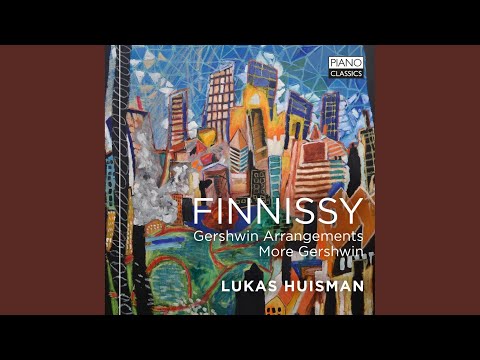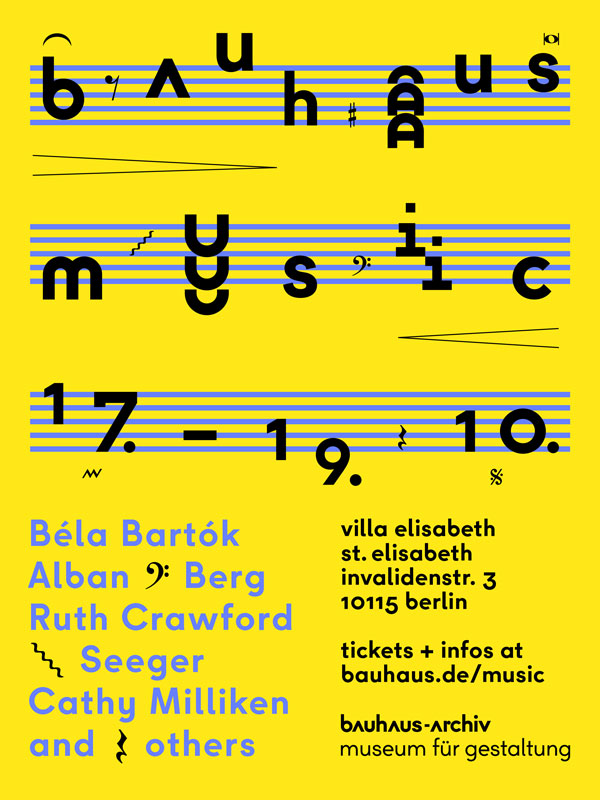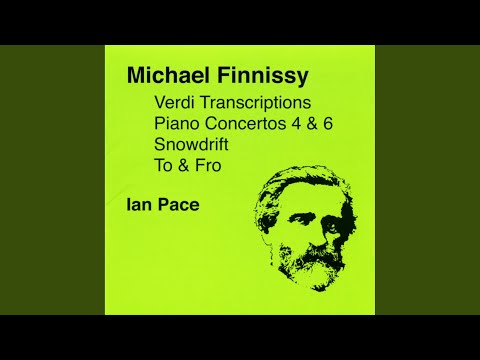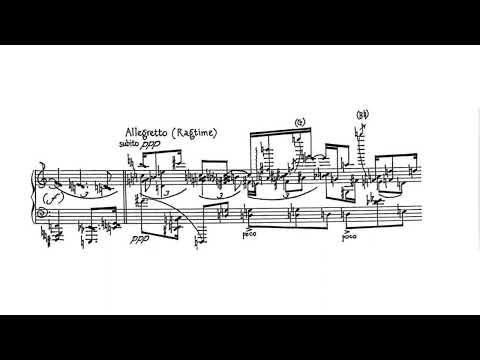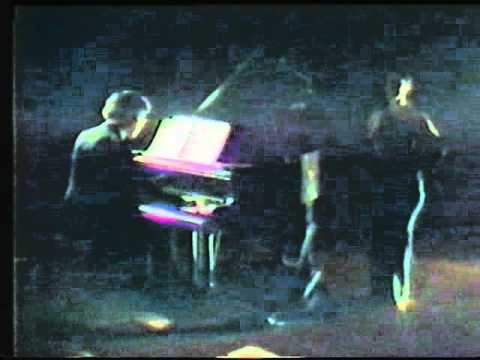I.
At 12:27 on September 30, you wrote me three lines that read
“Just caught TV glimpses of dreadful flooding in New York.
Hope you are OK.
M xx”
I replied only much later, half-past, (you, surely asleep)
My darling M,
(Will I ever stop using that ‘my’?)—
And though you didn’t know it—how could I have expected you to—that proem was both pilfered and wrong. It belonged to Hervé Guibert, from a letter he wrote to Eugène Savitzkaya dated Saturday January 7, 1984 that begins: “My Eugène/will I ever resort to abandoning that my? is it a motif of sweetness or malicious joy?” I stole his formula in the dead of night and I gave it to you tawdrily, crinkled and smudged, because we are dancing an epistolary pas de deux so many pairs have cut before us and it felt not only right but rightly queer to use their words in place of mine. And because I am—or like to think myself—the catastrophic lover Guibert once was. (Can one dream a stranger’s loving as their own? As theirs to give?) And because, more to the point, it is that my and the erotic possessives of an ars dictaminis I cannot help but hear each time your music and your name appear before me.
Why my transcription of Guibert should have been errant (not least when the original is so perfectly irradiant) I can no longer remember; the book would have been well within arm’s reach at the time of writing. Perhaps I couldn’t bear to merely quote, least of all to you, you who would never deign to cite outright without permitting some degree of slippage or private decoration. “I don’t want to make exact copies,” you once told me. “I rather fear I become immediately involved… is that living vicariously? or dangerously?—changes appear as soon as I start looking and hearing internally. I ‘inhabit’ my sources at once.” (Am I inhabiting Guibert when I misquote him? Boy of the curly hair whom I have always dreamt of being inside—)
The letters to Savitzkaya were the only correspondence Guibert authorized for public consumption (though his will ultimately left the decision up to Eugène). Something about his own letters mesmerized Guibert, about the version of himself he saw swimming there within. Once, he tried at proper autofiction taking Eugène as a source, only to admit in the final lines, “It was the letters that I imprudently wrote him each day that took over the story. They were the true story.” The lovesick delusions of the epistles always came somehow closer to fiction’s intangible reality than fiction itself could adequately approximate.
Correspondence intoxicates me. I suppose it’s because I feel neglected and abandoned by it in my own time. To love and to love words in the age of the computer is to spend one’s life subsisting on the printed remains of those who have done both better and more beautifully than you, all of whom did so in rhythm with the peristaltic contractions of the post. Literary love letters are my pathetic indulgence. I play the jealous voyeur, frightened yet aroused to watch dead lovers seal gallons of their best ink between the dangerously thin promise of the envelope’s sequester. I envy their raw eloquence, the selfless gift of language that comes without the promise of return, but most of all I envy how they write their love in webs, lines from favorite literature, James, Flaubert, Keats, Goethe always interleaved or stolen. The transformation of public textual domain into a line for your eyes only never fails to leave me breathless. I love lovers who quote, who malign the history of words for their own story.
There is a sense today—I think others share it—that the ubiquity of digital communication has stamped out any power the epistolary pen once had as literary vessel of transgressive erotics. To write love letters by hand was once to enter into commune with history itself, to join those legions of many-fated couples who have trusted their hearts to paper’s privacy. To write love letters was once to recount, in Anatole France’s phrase, “the adventures of a soul”—two souls really—“among masterpieces.” Today, I read those letters and I mourn a sense of self, mourn the private intimacy of shared, besotted words I will never thrill to know.
It’s something to do with the tyranny of copy-paste. When old lines no longer pass along the same muscular mechanism as new ones, when I leave a digital footprint rather than a literal handprint on the words whose phrasing I adore, the breath of history that animates the language of love goes stony cold. You, meanwhile, still do everything by that impossibly meticulous hand of yours. I once watched you copy out Slovenian folk melodies and, almost at the instant of the pen upon the paper, watched them change, rhythms stretch, ornaments pour into the gaps. You cannot help yourself, it is in the passage of an external artifact from hummed half-memory to hand on page that you begin to properly peek through. I’ve watched the music of other composers from your “complex” Davidsbündler fall to pieces in the wake of digitally-assisted composition; you have never suffered such a fate.
My second-hand copy of Guibert’s Mausoleum of Lovers is riddled with square holes from a previous owner who knifed out all his favorite entries. I know it was a knife because the pages bear no marks of that folding necessary for scissored incisions, and adjacent pages all bear the indents of a blade pressed roughly down. Despite the missing passages—which I assume are very good—I don’t have the heart to buy a new copy because I’ve grown oddly attached to this absent sibling, who adored Guibert so viciously as to steal from his own diary. He (why do I know it’s a he?) is my eternal fount of mystery (why the knife? Why not copy out by hand? And why do the annotations suddenly terminate with little pen rays encasing “Love of death and cocks”?). I love loving Guibert through and alongside him, just like I love Gershwin through your eyes (all perforated and scribbles too).
Walter Benjamin has an essay on Karl Kraus with the right sentiment but the wrong word. “In the quotation that both saves and punishes,” he says, “language proves the matrix of justice. It summons the word by its name, wrenches it destructively from its context, but precisely calls it back to its origin. It appears, now with rhyme and reason, sonorously, congruously, in the structure of a new text. As rhyme, it gathers the similar into its aura; as name, it stands alone and expressionless. In citation the two realms—of origin and destruction—justify themselves before language. And conversely, only where they interpenetrate—in citation—is language consummated.” Again, right sentiment, wrong term, because it’s not exactly citation that you do. You are no B. A. Zimmermann or Berio or Pound or Eliot, snipping and taping the flotsam of time into new and resonant collages. (Marjorie Perloff termed this “unoriginal genius”; I like the phrase, but it’s not you.) No, the word everyone repeats around you is transcription, which better accounts for the sheer abundance of possible change the source willingly undertakes when it enters into your amniotic fluid. I think the composer you feel closest to as a result is Charles Ives, but it’s Busoni whom you’re fondest of invoking. He has a phrase you learned in college that goes, “Notation is itself the transcription of an abstract idea, and the moment the pen takes possession of it, the thought has lost its original form.” Your point in quoting it is that there is no “original thought” to be had on paper, that notation already amounts to irrecuperable change. Benjamin’s “interpenetration of origin and destruction”: your music swings precarious between both.
Earlier, I wrote “tawdrily” as if anyone could possibly believe that word belongs to me. It has been Wayne Koestenbaum’s since 1993, from a caption in The Queen’s Throat that underwrites a glossy full-page portrait of Maria Callas: “Tawdrily,” Koestenbaum sighs, “I adore her.” (I will not check if I have gotten this correct; instead, I will simply leave a photo of you adoring Bella, tawdrily.)
Citation: intimacy among friends, reclamation too; (also certainly reparative; world-building; not infrequently camp).
Guibert never cites. It is one of the things that baffles and frightens me most about him. If his diary is any measure, he’s reading constantly (some volume by Bernhard, Babel, Isherwood, Lenz, more often his friend’s books, most often Le Monde). But the only literal quotation I can think of there is a few jotted lines from Whitman, who incidentally belongs to your pantheon as well. Most of the time Guibert lists just the title and a dashed measurement (great purveyor of autofiction that he is) of himself against it (“By dint of beauty, of complexity, of conscious style, Flaubert’s correspondence is paralyzing, almost humiliating: I find myself a modest, poor hack, and worthless in comparison with my own dreams of writing”). Accordingly, his writing never situates history as a firm place of occupancy. Instead, he draws irresponsibly from his immediate environment (where historical objects may or may not present themselves) and allows it to transform in the passage between the event and the pen. Which is where, in an odd way, he crosses paths with you. For all the encyclopedic referentiality buoying your soul across the page, your music never amounts to a historical study of. The three books of the “Verdi Transcriptions” are less about Verdi than they are about you, about Verdi-in-you, Verdi as a kind of acoustic impulse for sounding out your depths. You admit as much: “The musical material of the original opera is transferred from his psychology to mine.” I know this to be true because Verdi could never have pulled off anything so spare and devastating as your “Don Carlo” transcription. In “Toi qui sus le néant,” the Italian paints a royal and reserved grief that still manages to recoil from the lip of abyssal nothingness. You write the cliff itself.
Fleur Jaeggy wrote once about Marcel Schwob. She claimed he “took up residence in the severe, often deserted halls and archives of the Bibliothèque Mazarin,” and then, next line (the leap threadbare), “He turned into a writer.” Is it so simple? Did you too, plainly, at the foot of time, simply turn into a composer? How such things happen I don’t pretend to know. Doubtful I ever will. Like Jaeggy, I confine myself to write around that rift, that period and the tiny, inaccessible space between the living in the archive and the ink.
II.
Winter comes impoverished. I take a job shelving overstock in a drafty warehouse bookstore where the fraying strings of ceiling lights slip through frozen hands. My dead friend’s coat, worn indoors, has a hole in the right pocket where my pen routinely loses its already tenuous grip. I steal Kundera and Suleri to burn inside, to keep me warm. Dust is a permanent earplug.
Joy: a battered copy of To The Friend Who Did Not Save My Life arrives forgotten, buried deep within the dregs of a snow-beflecked donations box. Horrified, I watch the boss condemn Guibert’s most famous book to wilt neglected in Used Fiction’s third-floor annals. A renegade, I climb the stairs and rescue him for pride of place in classics where he sells, within the week, with my back turned. (Always these nearby ghosts of others who love him too but permit not a whisper of admittance.) I write and tell you this. In its dark December heart my story holds a desperate ploy, a covert entreaty for mutuality’s benevolent salvation: Have you seen the one my heart loves? Have you loved him also?
“I don’t remember where I heard about Hervé,” you write me back, “(though I used to read Foucault and Barthes in the 1980s; and occasionally, when in Paris, Le Monde).” (It would have been the latter if you found him while in Paris; Guibert was a staff photographer and photography critic for the paper through the ‘80s.) “I don’t think he has been much discussed in the UK—given the nature of his writing, this doesn’t surprise me. Don’t rock any boats hereabouts. I have his famous book [To The Friend], and some stories. My History of Photography in Sound is as much due to his influence as to Jean-Luc Godard. Particularly the confusion of ‘truth’, ‘autobiography’, ‘appropriation + distortion’ and the ‘myths of creativity’ in the Modern World.”
The latest from VAN, delivered straight to your inbox
And I remember thinking how revelatory this was. Your relationship to cinema is legend, of course: When you lectured at Southampton you ran a class on film as compositional process, teaching form, scale, pace, and perspective through close-readings of Makropolous, Dreyer, Pasolini, and Jack Smith (whose “Flaming Creatures” gave you the stuttering form for “English Country Tunes”). But the realization that Guibert the photographer (my Guibert) was behind one of the defining cycles of 20th-century piano repertoire felt like that work’s missing link. You’ve always insisted that the animating features of your music are unsettledness and sexual excitation, but I’ll admit I’ve struggled in the past to reconcile erotics with your archival erudition, sex with your voracious consumption of history’s dry looseleaf. But there is, in Ghost Image (Guibert’s book on photography), a passage on eroticism that only now I realize is “History of Photography”’s undisclosed epigraph:
The body in an erotic photograph can be manipulated—we can take it by the hand and lead it toward pornography, towards its own pornography. We can fantasize: Here’s what I would like to do with this body, this is what I would like to touch, this is what I want to submit it to, what I want it to submit me to. The body is open, possible, an ill-defined body… easily handled. I can manipulate it as I please, I can turn it over, I can make it articulate something other than its text, I can bend it in two and it never tires, it detaches itself from the paper to fill my head.
Violent textual manipulation is erotic, that’s your whole thrust. In his diary, Guibert admits to preferring “concrete sadomasochism” to wordplay “because it is a brutal transcription that leads to pleasure, an exorcism for the heart’s aches.” You once said to me: “I feel I sometimes write to ‘exorcise’ as much as to ‘reveal’. It sometimes seems to matter very little, one way or the other.” In any case, no one has ever written a better description of your music than a brutal transcription that leads to pleasure. (There’s something Dennis Cooper here too, only instead of twinks, it’s history you get off on bloodletting.)
“But Guibert’s confessional (and deliberately ‘provocative’ sometimes ’shocking’) mode of discourse,” you continued, “made an early impact on me. Fish out of water, with—perhaps—unusually skewed views of humanity. Not skewed by choice but from circumstance, from experience and accurate observation. This view contrasts mightily with English ‘coldness’ (don’t the French say froideur?). Or with English tradesmen’s notion of ‘professionalism’ which is necessarily error-free, bland, and generalised to the point of being vacuous.”
That “fish out of water” quip—I’ve heard you use it before. The last time was in regards to Rauschenberg’s photography: his alienation of the most familiar objects as a means towards sensual response. You said your relationship with folk music was similar, evocative without reproduction, no claims to authenticity, a porous object productively estranged from its native habitat (though whether that meant you or the folk song was the fish in question I’ve never fully clarified).
And then, just as an aside (gay gossip among gays), you tacked on: “Maxwell Davies told me: ‘I don’t put myself into my work’—how is that even possible?!”
I love your terminal incredulity. Your exhausted disbelief and faggy impatience and the exasperated bristle of your impeccable schooled cadence—I love it. One day I watched a BBC4 profile where no one warned the poor interviewer to avoid your least favorite blanket term, and I giggled to hear you get so riled up at the stupidity of people who repeat things without thinking:
“I wouldn’t deliberately design something to be complex… I would admit to being complex but I’m not interested in people that aren’t! I mean, if you’re a superficial, shallow person why on earth would you expect me to be interested in you!? I’m not.”
Which has always been your mantra. Your interviews and writings brim with encomia for the detail, for superfluity, ornamentation, excess, and passion, but never do you outright praise complexity. And I’ve seen you cut people to the quick for insinuating that you do, especially if they dare imply that your densest, most compact bars are somehow your most important. In a testy exchange with pianist Ian Pace, you lay into him (I love you for it):
“Surely the capabilities of the performers you’re writing for has some bearing on the piece you write? There are very different possibilities in writing for an amateur choir than for a very experienced ensemble.”
“Of course there are, but I don’t find one more limiting or frustrating to my creativity than the other… it’s your problem if you think one is ‘better’ or ‘more characteristic’ than the other.”
(The defense of the choir comes naturally: your partner Philip has been the organist and music director at the local church in Sheringham for many years, and you—who loath organized religion though not its music—endure as the sole competent bass and occasional composer-in-residence just to be closer to him. I often wonder whether those warbling church sopranos know that you belong to a dying order of legendary musical inheritance; if they care.)
III.
On December 27, 1991, Hervé Guibert died. The overdose of digitalin he’d earlier housed in a medicinal cocktail on the eve of his 36th birthday failed to kill him overnight, and his poor heart weathered two comatose weeks before giving out at last. His suicide was the fulfillment of a promise: the emotional contract under which he bore his AIDS-stricken body to an international public with such ferocious erotic scrutiny stipulated that he cede not an ounce of control to its torturous finality. Death was only the final act in an ongoing labor of reclamation against an illness that, in the last years of his life, returned to him his fullest literary self; he killed himself as refuge and summation.
In his wake, Guibert left a body of writing, photography, and film whose unbearable sexual cathexis has defined, perhaps more than any single author, the trajectory of modern gay literature. But for all their overt likeness—the photography, the autofiction, the implacable eroticization of material, the relentless environmental kleptomania—it is still the inescapable orienting force of Guibert’s epistolary my that binds him most to Michael Finnissy. From the first utterance, their writing cleaves in double flight: attempting a surrender to the alterity of a loved object, it rebounds violently towards the interior of its author, reasserting a consumptive subjectivity at what ought to be the very limit of the self. Both authors are aware of—without control over—their my’s absolute necessity. Guibert’s final letter to Eugène begins: “The more time passes, the more I hesitate to put that ‘my’ before your name, but the hesitation never fails to make me sad, so, once more, I brave it.” It is not and never can just be Eugène, just as Finnissy never quotes without smudging the fingerprint beneath his own. The precedentary condition of their writing at all is a forced occupation in language of what can never truly belong to them; that insistent my is always and forever their first and foundational word.
Barthes takes care to distinguish love letters from lowly correspondence, which he calls “a tactical enterprise to defend positions, make conquests… But for the lover the letter has no tactical value: it is purely expressive.” As a medium, it evades discursive positioning, sidesteps proper subject-object relations, situates the other as other within. Barthes gives the love letter’s sum essence from Goethe: “A single piece of information is varied, in the manner of a musical theme: I am thinking of you”—thinking which, he says, amounts to nothing. “In itself, such thinking is blank: I do not think you; I simply make you recur (to the very degree that I forget you). It is this form (this rhythm) which I call ‘thought’: I have nothing to tell you, save that it is to you that I tell this nothing.”
Finnissy has long said that film is the medium closest to his music: The motion of cameras in relation to a shifting target characterizes something of his music’s perspectival dilations. But his self-professed axiom—“capturing phenomena moving at different rates”—is the purview of the love letter too. The writing self careens at unequal expressive velocity in relation to its object of love, caught in constant flux upon the page. Distance, notation, alterity, passion, language, history, and desire are crucial to its enchantment. It codes in private what elsewhere glares in the public eye. Writing always of the other to the other under the sign of the impossible possessive, Finnissy’s music traces love’s elastic epistolary form.
Guibert knew the letters to Eugène held his ultimate, unfictionalizable testimony, filled as they were with the true fictions of his love’s debilitating force. The music of Michael Finnissy is—and has always been—this force.
IV.
February 27, 11:24 a.m.:
“‘I am a vessel through which things pass’… isn’t that what Scelsi claimed?”
I wouldn’t know; I’ve never been able to track down that quote. And even if I could, it would almost certainly be a less revealing variation—I learned a long time ago that taxonomy is futile with you. Anyway, I prefer your phrasing. Things always seem to warp when they drift through your hand, and the trembling weft, those traces of you, are what I listen for nowadays.
We talk again in early March, your birthday. I tell you that clips of “English Country Tunes” are making their semi-annual X rounds, this time under the banner “Giants walk among us.” You cluck, and quickly chide me: According to your doctor, your spine has shrunk (the consequence of old age), “and, if a giant,” you cheek, “then where the inevitable Jack and his beanstalk?” Is that erotic or self-deprecatory? (Would you tell me that difference is irrelevant?)
We share a birth month but not a star sign, did you know that? I’m an Aries, a fire sign (always have been to a fault) and you’re my watery Pisces. According to a trashy zodiac website, that means you “have a habit of blurring fantasy and reality”—they certainly got that bit right. The website also says your astral symbol is twin fish, so perhaps that makes you both out-of-water, forever circling the other: unmoored. But then again, what do they know?
(“Strangers to the world, runaways, we are held in the fragile arms of foreignness, each one in the arms of the other’s foreignness, to be strangers together, and trembling in the wind, is the condition of love, the lovers’ condition.” —Hélène Cixous)
V.
Last week they asked me to write a portrait of you. I told them I didn’t think I knew how. The real and the unreal are too fuzzy with you, too elided now to ever divvy up again by so blunt a criterion as “truth.” “The autobiographical element should be understood as me-as-my-music or me-as-composer,” you whisper, evasive, grinning, impish. Nothing shrouded in that epistolary my could ever seriously be taken as objective. Only try to forgive what I have made. Let the Gods forgive what I have made. I have drawn you as I know you, where I meet you, always, there: between the declaration and the secret. ¶
Subscribers keep VAN running!
VAN is proud to be an independent classical music magazine thanks to our subscribers. For just over 10 cents a day, you can enjoy unlimited access to over 875 articles in our archives—and get new ones delivered straight to your inbox each week.
Not ready to commit to a full year?
You can test-drive VAN for one month for the price of a coffee.


